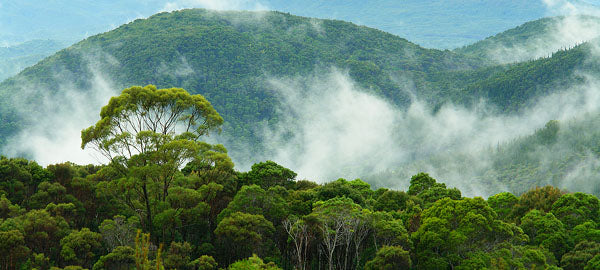

Introduction Forests, often referred to as the lungs of our planet, play a crucial role in regulating the Earth's climate. They sequester carbon dioxide, provide habitats for diverse species, and support the livelihoods of millions of people. However Read more
Trending
Trees for Corporates
The Future of Forests: Adapting to a Changing Climate
Introduction
Forests, often referred to as the lungs of our planet, play a crucial role in regulating the Earth's climate. They sequester carbon dioxide, provide habitats for diverse species, and support the livelihoods of millions of people. However, in our rapidly changing world, forests are facing unprecedented challenges due to climate change. Rising temperatures, altered precipitation patterns, and more frequent extreme weather events are affecting the health and composition of forests worldwide. In this blog, we will explore the future of forests and the strategies required for these vital ecosystems to adapt to a changing climate.
The Climate Change Challenge
Forests are no strangers to natural disturbances like wildfires, insect outbreaks, and droughts. However, the increasing intensity and frequency of these disturbances, driven by climate change, pose significant challenges for forests. Here are some key climate-related challenges that forests face:
-
Altered Temperature Regimes: Rising temperatures can disrupt the balance of ecosystems and influence the geographic distribution of tree species.
-
Prolonged Droughts: More extended and severe droughts can weaken trees and make them more susceptible to pests and diseases.
-
Increased Wildfires: Higher temperatures and drier conditions contribute to more frequent and intense wildfires, which can lead to extensive forest loss.
-
Shifts in Species Distribution: Some tree species may no longer be suitable for their current locations, and new species may move in, altering forest composition.
Adapting Forests to a Changing Climate
To ensure the health and resilience of forests in the face of climate change, various strategies and approaches are being implemented worldwide. Here are some key strategies for adapting forests to a changing climate:
-
Assisted Migration: As climate zones shift, some tree species may need human assistance to migrate to more suitable locations. This involves planting tree species outside their current range to help them adapt.
-
Assisted Evolution: Selective breeding and genetic modification can be used to create tree varieties that are better adapted to changing environmental conditions.
-
Restoration and Reforestation: Replanting trees in deforested or degraded areas and restoring damaged ecosystems can help bolster forest health and increase their capacity to sequester carbon.
-
Sustainable Forest Management: Practices that promote biodiversity, reduce logging, and protect old-growth forests can enhance resilience to climate change.
-
Fire Management: Implementing controlled or prescribed burns can help reduce the risk of catastrophic wildfires, allowing forests to regenerate more naturally.
-
Monitoring and Research: Regular monitoring and scientific research are crucial to understand how forests are responding to climate change and adapt management strategies accordingly.
-
Community Involvement: Engaging local communities in forest management and restoration efforts can lead to more sustainable and climate-resilient practices.
-
International Cooperation: Collaborative efforts among countries and organizations can help address transboundary issues, such as the preservation of critical global forest ecosystems.
The Role of Technology
Advances in technology, including satellite monitoring, remote sensing, and geographic information systems (GIS), have significantly improved our ability to assess and manage forests in the face of climate change. These tools help scientists and conservationists track forest health, deforestation, and the effects of climate change, enabling more effective decision-making and policy development.
Conclusion
The future of forests in a changing climate is a matter of global concern. Forests provide vital ecosystem services, from carbon sequestration to water regulation, and support biodiversity and human well-being. Adapting forests to a changing climate requires a combination of science, technology, and sustainable management practices. It also calls for international cooperation and public engagement to protect these invaluable ecosystems. By taking proactive measures to ensure the resilience of our forests, we can help safeguard their future and mitigate the impacts of climate change on a global scale. The future of our planet's forests depends on the actions we take today.
You may also like
Corporate Plantations
Most Popular
Connect with us
-
👥 Corporates
If you are looking for:
- 🌲 Tree Plantation Events
- 📊 CSR Projects
📧 corporate@growbilliontrees.com
📞 +91 9699723523
💬 +91 9325931304 WhatsApp (Only)
🕒 Mon - Sat | 10am - 7pm IST
-
🧩 Tree Plantation NGOs
If you are looking for:
- 💰 Financial Assistance
- 🤝 Operational Support
📧 support@growbilliontrees.com
📞 +91 9699723523
💬 +91 9325931304 WhatsApp (Only)
🕒 Mon - Sat | 10am - 7pm IST
-
🌼 Individuals
If you are looking for:
- 👥 Group Tree Plantation Drive
- 🌳 Bulk Tree Plantation
📞 +91 9699723523
💬 +91 9325931304 WhatsApp (Only)
🕒 Mon - Sat | 10am - 7pm IST





















